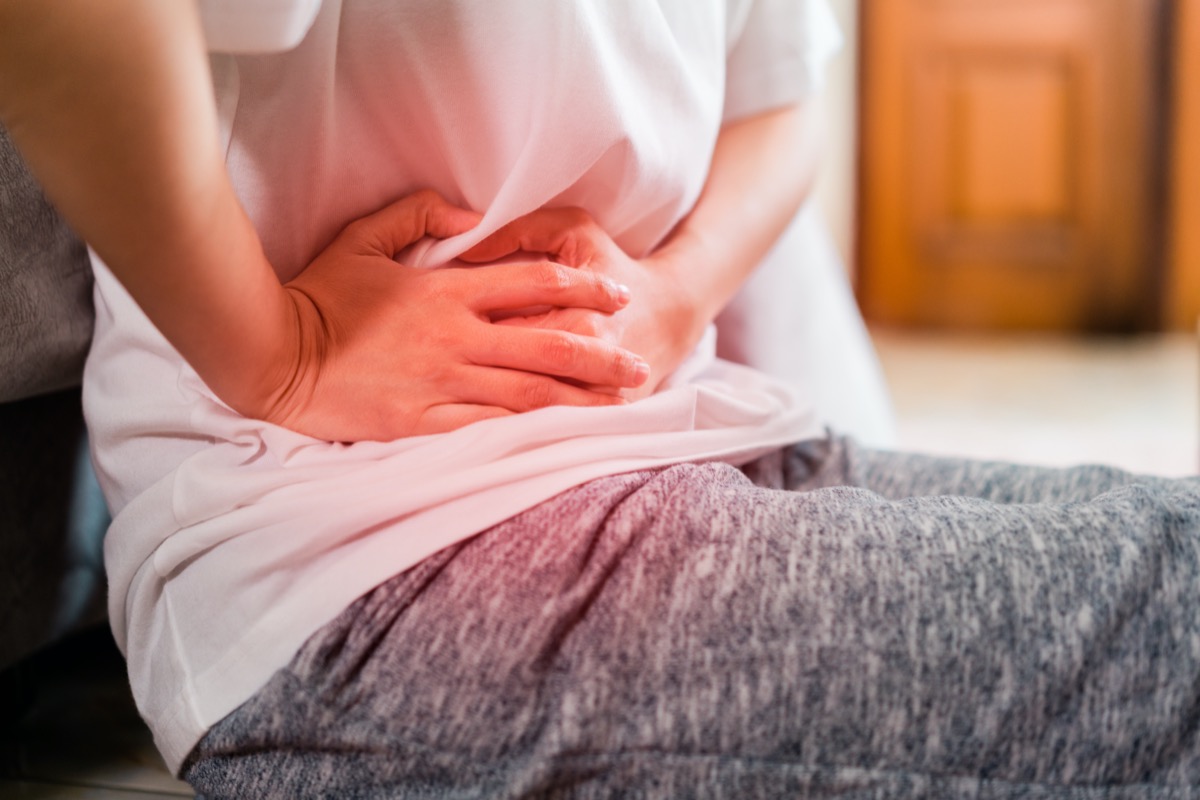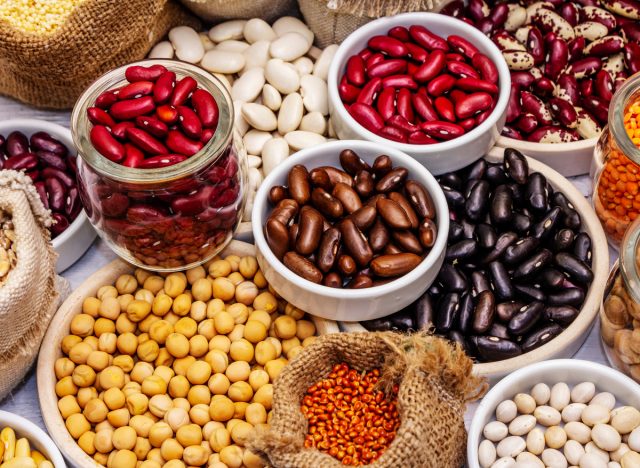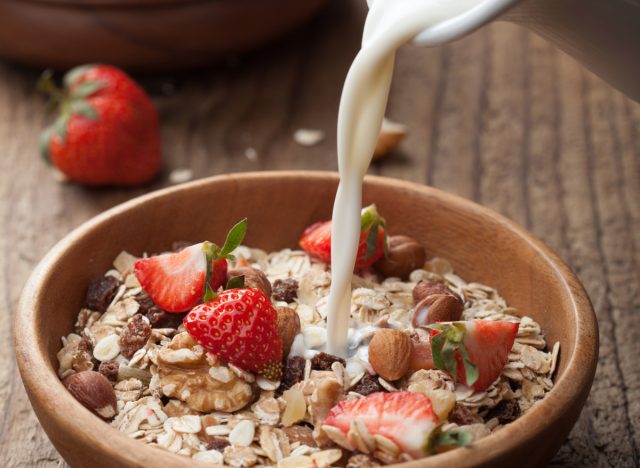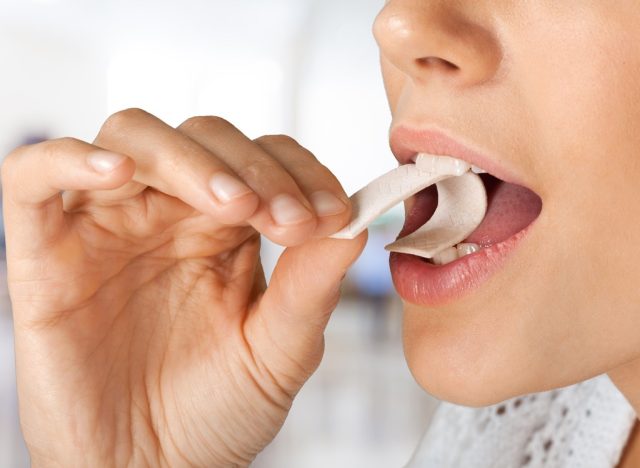Why Am I So Gassy? This Is What Your Body Could Be Telling You

Everybody finds themselves expelling gas from their bodies at some point in life. Flatulence is just a natural part of the human experience. In fact, we reportedly pass gas around 15–20 times a day, and this is considered totally normal. We usually expel very little gas by volume daily—only about 700 ml, which would just about fill a small disposable water bottle. But sometimes the bloating and gas production is so prodigious we wonder, “Geez, what the pfhhht did I eat?”
When it comes to how we develop that gassy and bloating feeling, it stems from two causes:
- Swallowing air while eating, drinking, smoking, or chewing gum.
- From food, especially certain hard-to-digest foods.
Overeating makes things worse. Intestinal gas gathers as a result of digestion and bacterial fermentation in the colon. The major gases making up flatus are hydrogen, oxygen, nitrogen, carbon dioxide, and methane. Hydrogen sulfide and other sulfur-containing gases cause most of the odor. But research shows that only about 1% of farts stink to high heaven or have any oder at all. And get this—most gas is passed while you’re asleep. (And you thought he was snoring!)
Tooting is totally normal. (If you’re looking for body oddities from what you eat, read 15 Bizarre Side Effects of Common Foods.) It’s even healthy. But farting and bloating can be symptoms of an underlying health problem like irritable bowel syndrome (IBS).
“Statistics suggest that up to 80% of IBS patients may suffer from a condition called SIBO, which stands for small intestinal bacterial overgrowth,” says Samantha Hass, RD, a registered dietitian for F-Factor, a diet program based on fiber-rich nutrition. “It can cause bloat when the overgrown bacterial in your gut feeds off undigested carbohydrates and produces gas. You need a simple hydrogen test from your GI doctor to get diagnosed and then antibiotics to clear it.”
If you have a lot of flatulence with such other symptoms as reflux, abdominal pain, constipation, diarrhea, bloody stools, nausea and vomiting, or weight loss, see your doctor, advises the Mayo Clinic.
For the most part, however, normal bouts of farting can be controlled by making adjustments to your diet—or masked by turning up the TV really, really loud. And it helps to know these potential triggers to gas buildup before you experience the blow out.
The musical fruit

“Beans and lentils are likely to trigger gas, especially if you aren’t used to eating them,” says registered dietitian nutritionist Lisa R. Young, Ph.D., RDN, author of Finally Full, Finally Slim and The Portion Teller Plan.
The culprit? That indigestible oligosaccharide called raffinose.
“Our bodies don’t have the enzyme needed to break down raffinose so when the beans hit your large intestine the good bacteria in there thrive on it and ferment it leaving you gassy,” says Hass.
Some ways to keep eating those healthy beans without the bloat:
- Soak beans overnight before cooking to reduce the amount of raffinose.
- Hass suggests pairing your beans with a cup of fennel tea for better digestion.
- Try the product Beano, which provides an enzyme to assist in digesting raffinose.
The cabbage patch
Many foods that support our health also can cause us to feel gassy and bloated.
“One group of food that checks both the ‘good-for-you’ and the ‘gassy’ boxes is cruciferous vegetables,” says registered dietitian nutritionist Lauren Manaker, MS, RDN, and author of The First Time Mom’s Pregnancy Cookbook. “These include broccoli, cauliflower, cabbage, and brussel sprouts, among others.”
Cruciferous vegetables contain a sulfur-based phytochemical called sulforaphane as well as a hard-to-digest sugar called raffinose that your gut bacteria ferments and produces gas.
Cut the cheese
The sugar in milk and cheese is called lactose. Some people who are lactose intolerant are unable to fully digest the sugar in dairy foods, explains Manaker. When bacteria in the colon ferment the lactose, gasses like carbon dioxide, hydrogen, and methane are produced, which cause flatulence and bloating.
Cutting cheese, milk, and yogurt from your diet is one solution for people suffering from lactose intolerance. Those who want to enjoy dairy foods but cannot tolerate lactose can try the many lactose-free dairy products available.
Feeling your oats?

Many people who start eating steel-cut oats in the morning to lower their cholesterol find that they’re farting more frequently. Too much fiber can cause gas; bacteria in the colon produces gas as a byproduct of digesting the fiber.
“You can often relieve the gas by introducing high-fiber foods into your diet slowly, drinking more fluid as you do, and exercising,” says Young. “If you start eating a very high fiber diet—like, twice what’s recommended, or about 70 grams daily—you’ll likely cause bloating and flatulence.”
Not enough oats
“People often think fiber bloats you, but the absence of fiber can actually lead to more bloating and gas,” says Hass.
When you eat a low-fiber diet, the bad gut bacteria can overcrowd the good bacteria leading to an unhealth gut microbiome.
“The good bacterial feeds off fiber so when you eat fiber, your build a healthy gut,” continues Hass. The right way to fiber up? “Increase your fiber intake slowly until you reach 35 grams of fiber per day or more,” she adds.
Good sources include berries, leafy greens, lentils, bran cereal, whole grains, nuts, and seeds. Supplements are another way to get more fiber.
Additionally, Hass also recommends drinking lots of water when increasing your fiber intake. If you don’t drink enough water with fiber, you can become constipated, which backs up the gas, leaving you bloated.
“Drink three liters of water and have 35 grams of fiber per day to ensure daily bowel movements and a flatter stomach,” says Hass.
Gum bubbles

Have you noticed after having sugar free gum or candy you must unbutton your pants?
“Sugar-free or low-carb foods often contain sugar alcohols because they are lower in calories and carbohydrates with the same taste,” says Hass. “In excess, sugar alcohols cause bloating, gas, cramping and diarrhea.”
You can avoid them by reading nutrition labels and looking xylitol, erythritol, glycerol, sorbitol, maltitol. Even chewing gum that’s not sugar-free can give you gas because you are constantly swallowing saliva and air.
If belching doesn’t bring that air back up, it will travel through the entire intestinal system and come out as flatulence, said Trygve Hausken, a gastroenterologist and professor at Norway’s University of Bergen in a news release.
Eating too quickly can cause bloating because you are bringing food into your digestive tract in larger pieces, says Hass.
Bevs that bloat
“Carbonated beverages may also contribute to gas and bloating,” says Manaker.
Post-workout shakes and smoothies can also disagree with your gut and produce gas. Some people have an intolerance to whey protein. If you find you suffer after drinking a protein shake, try a plant-based protein powder such as pea protein, hemp, or soy, suggests Hass.









